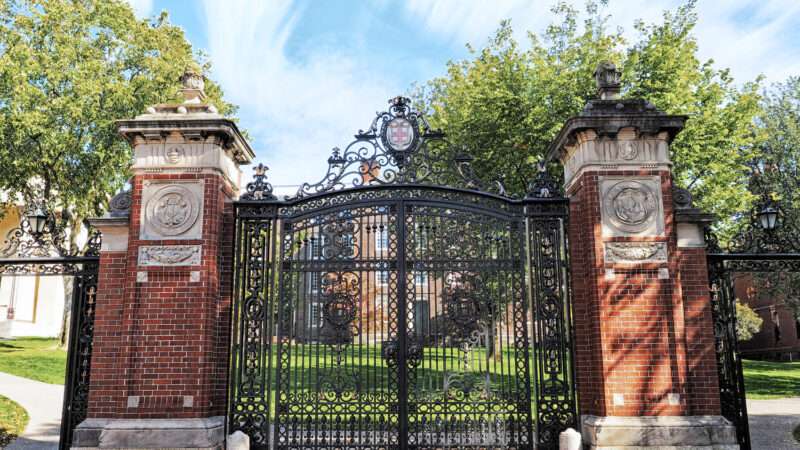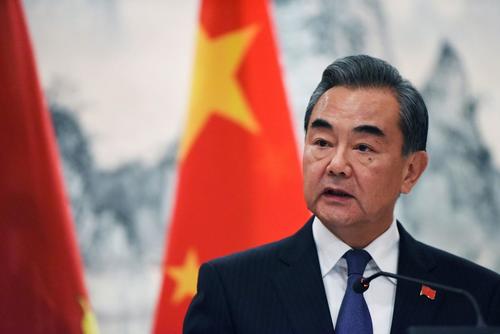New Mexico Gov. Michelle Lujan Grisham plans to call the state legislature back into session so it can consider a bill that would legalize marijuana for recreational use. Next door in Texas, where I live, state legislators are considering a bill that would make that state’s draconian marijuana penalties a bit less oppressive. And in Pennsylvania, where I grew up, newly released data indicate that police made more than 20,000 marijuana possession arrests—an average of 55 a day—in the midst of the COVID-19 pandemic last year.
Those three snapshots reveal a country where marijuana prohibition is slowly crumbling, creating stark differences between jurisdictions that continue to treat cannabis consumers as criminals and jurisdictions where they can not only use pot without risking arrest but can buy it from state-licensed businesses. Those suppliers, meanwhile, remain felons under federal law, an untenable situation that President Joe Biden, notwithstanding his new pose as a drug policy reformer, plans to maintain. That contradiction is reflected in the Biden administration’s personnel policies, which treat past cannabis consumption, even in states where marijuana is legal, as a threat to national security.
Since 2019, when New Mexico decriminalized low-level marijuana possession, the maximum penalty for people caught with up to half an ounce has been a $50 fine. The maximum penalties rise to a $100 fine and 15 days in jail for more than half an ounce but less than an ounce, then a $1,000 fine and up to a year in jail for one to eight ounces.
Marijuana has been legal for medical purposes in New Mexico since 2007. H.B. 12, which the state House of Representatives approved last month by a vote of 39 to 31, would extend that tolerance to recreational use, allowing adults 21 or older to grow up to six plants for personal consumption and buy cannabis from state-licensed businesses.
“Legalized adult-use cannabis is one of the best moves we can make in our work to build a bona fide 21st century economy in New Mexico,” Lujan Grisham said in a press release on Saturday. “And New Mexicans are more than ready: Poll after poll has demonstrated that our state wants this opportunity.” She said “we are very close” to legalization, “and we will finish the job.”
The special legislative session, which will allow consideration of amendments and give the state Senate a chance to weigh in, is expected to begin at the end of the month. If the bill is approved, New Mexico will be the 16th state to allow recreational use and the second (along with Vermont) to do so through the legislature rather than through a ballot initiative.
In Texas, marijuana is not legal for medical or recreational use. The number of marijuana arrests in Texas reached a record high of nearly 100,000 in 2018 before dropping substantially the following year.
Possession of two ounces or less is a Class B misdemeanor in Texas, punishable by a $2,000 fine and up to six months in jail. Possession of two to four ounces is a Class A misdemeanor punishable by a maximum fine of $4,000 and up to a year in jail. Texas treats possession of marijuana concentrates even more severely: Possessing less than a gram is a “state jail felony” punishable by a maximum fine of $10,000 and up to two years of incarceration.
The onerous penalties for concentrates were partly responsible for the 10-year mandatory minimum that 19-year-old Jacob Lavoro initially faced in 2014 after police caught him with a pound and a half of marijuana cookies and brownies. Texas treats offenses involving cannabis concentrates, regardless of THC content, much more severely than offenses involving marijuana buds, and it counts “adulterants and dilutants” as part of a drug’s weight. In Lavoro’s case, as Williamson County First District Attorney Mark Brunner explained, that meant treating the baked goods as if they consisted entirely of hash oil, which put Lavoro well over the 400-gram cutoff for a first-degree felony.
“As prosecutors,” Brunner said, “we are bound by what the law is, not what the law should be or could be.” After a loud public outcry, Lavoro reached a plea deal involving seven months of probation.
H.B. 1086, which the House Criminal Jurisprudence Committee is considering today, would double the marijuana flower limit for a Class B misdemeanor and make the weight range for a Class A misdemeanor four ounces to five pounds. The latter category would also include possessing less than a gram of concentrate. But the bill would not affect penalties for larger amounts of concentrates. Possessing one to four grams, for example, would still be a felony punishable by two to 10 years in prison, and possessing more than 400 grams (the original charge against Lavoro) would still trigger a sentence of 10 years to life.
Pennsylvania’s marijuana penalties are mild by Texas standards. Possessing up to 30 grams (about an ounce) is a misdemeanor punishable by a $500 fine and up to 30 days in jail. For larger amounts, the maximum penalties are a $5,000 fine and up to a year in jail. Like Texas, Pennsylvania treats concentrates more severely, but the penalties are not nearly as onerous: up to 30 days for eight grams or less and up to a year for larger amounts. But except for state-approved patients, who have been allowed to use marijuana since 2016, people caught with any amount of cannabis are still subject to arrest.
Pennsylvania’s 20,200 low-level possession arrests last year represent a slight drop from 2019. But the total has exceeded 20,000 every year except one since 2009, even as several cities, including Philadelphia, Pittsburgh, Erie, Allentown, Harrisburg, York, Lancaster, and Norristown, have decriminalized possession. Beginning in 2016, arrests rose for three years in a row.
Data obtained by Chris Goldstein, a regional coordinator with the National Organization for the Reform of Marijuana Laws, show the risk of arrest is not evenly distributed. In 2020, Goldstein found, blacks were 3.5 times as likely to be arrested for marijuana possession in Pennsylvania as whites, although cannabis consumption rates in the two groups are similar. The American Civil Liberties Union has documented similar disparities across the country.
“Cannabis consumers were targeted even during the Covid-19 pandemic,” Goldstein observes. “This shows just how aggressively prohibition is enforced, despite the unprecedented public health risks in our communities. It’s time to stop marijuana arrests, right now.”
Pennsylvania Gov. Tom Wolf favors legalization. A bill backed by state Sens. Shari Street (D–Philadelphia) and Dan Laughlin (R–Erie) would eliminate penalties for personal possession, expunge marijuana convictions, and authorize commercial production and distribution for recreational use.
According to the latest Gallup poll, more than two-thirds of Americans think marijuana should be legal. Recent surveys put support for legalization at 72 percent in New Mexico, 60 percent in Texas, and 62 percent in Pennsylvania.
from Latest – Reason.com https://ift.tt/3ccH9hH
via IFTTT








